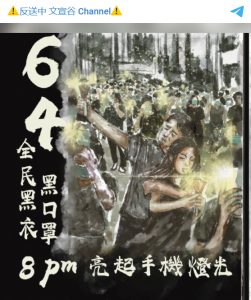11 Jun 2021 | Events
[vc_row][vc_column][vc_single_image image=”116887″ img_size=”large”][vc_column_text]Why abusive legal threats and actions against journalists must be stopped.
Journalists are public watchdogs: by bringing information that is in the public interest to light, they help to hold power to account. But what if powerful or wealthy people wanted to keep their wrongdoings a secret? Abusive legal threats and actions, known as strategic lawsuits against public participation – or SLAPPs, are increasingly being used to intimidate journalists into silence. They are used to cover up unethical and criminal activity and to prevent the public of their right to know. SLAPPs have a devastating impact, not only on media freedom, but on human rights, rule of law, and our very democracies. This webinar hosted by Index on Censorship, the European Centre for Press and Media Freedom (ECPMF) and Foreign Policy Centre (FPC), will examine the issue of SLAPP and why we need to take action in the UK and the EU to stop them.
Speakers:
Bill Browder, Head of Global Magnitsky Justice Campaign (chair)
Annelie Östlund, financial journalist
Herman Grech, Editor in Chief of Times of Malta
Justin Borg Barthet, Senior Lecturer at University of Aberdeen
With contributions from:
Jessica Ní Mhainín, Policy and Campaigns Manager at Index on Censorship
Paulina Milewska, Anti-SLAPP Project Researcher at ECPMF
Susan Coughtrie, Project Director at Foreign Policy Centre
Register for tickets here.[/vc_column_text][/vc_column][/vc_row][vc_row][vc_column][/vc_column][/vc_row][vc_row][vc_column][vc_column_text][/vc_column_text][/vc_column][/vc_row]
4 Jun 2021 | Belarus, China, Hong Kong, News
[vc_row][vc_column][vc_column_text] As you scroll through your Telegram feed, one image jumps out.
As you scroll through your Telegram feed, one image jumps out.
It shows crowds of young Hong Kongers, all dressed in black, at a protest, holding their smartphones aloft like virtual cigarette lighters from a Telegram channel called HKerschedule.
The image is an invitation for young activists to congregate and march to mark the anniversary of the Tiananmen massacre on 4 June. Wearing black has been a form of protest for many years, which has led to suggestions that the authorities may arrest anyone doing so.
Calls to action like this have migrated from fly posters and other highly visible methods of communication online.
Secure messaging has become vital to organising protests against an oppressive state.
Many protest groups have used the encrypted service Telegram to schedule and plan demonstrations and marches. Countries across the world have attempted to ban it, with limited levels of success. Vladimir Putin’s Russia tried and failed, the regimes of China and Iran have come closest to eradicating its influence in their respective states.
Telegram, and other encrypted messaging services, are crucial for those intending to organise protests in countries where there is a severe crackdown on free speech. Myanmar, Belarus and Hong Kong have all seen people relying on the services.
It also means that news sites who have had their websites blocked, such as in the case of news website Tut.by in Belarus, or broadcaster Mizzima in Myanmar, have a safe and secure platform to broadcast from, should they so choose.
Belarusian freelance journalist Yauhen Merkis, who wrote for the most recent edition of the magazine, said such services were vital for both journalists and regular civilians.
“The importance of Telegram has grown in Belarus especially due to the blocking of the main news websites and problems accessing other social media platforms such as VK, OK and Facebook after August 2020,” he said.
“Telegram is easy to use, allows you to read the main news even in times of internet access restrictions, it’s a good platform to quickly share photos and videos and for regular users too: via Telegram-bots you could send a file to the editors of a particular Telegram channel in a second directly from a protest action, for example.”
The appeal, then, revolves around the safety of its usage, as well as access to well-sourced information from journalists.
In 2020, the Mobilise project set out to “analyse the micro-foundations of out-migration and mass protest”. In Belarus, it found that Telegram was the most trusted news source among the protesters taking part in the early stages of the demonstrations in the country that arose in August 2020, when President Alexander Lukashenko won a fifth term in office amidst an election result that was widely disputed.
But there are questions over its safety. Cooper Quintin, senior security researcher of the Electronic Frontier Foundation (EFF), a non-profit that aims to protect privacy online, said Telegram’s encryption “falls short”.
“End-to-end encryption is extremely important for everyone in the world, not just activists and journalists but regular people as well. Unfortunately, Telegram’s end-to-end encryption falls short in a couple of key areas. Firstly, end-to-end encryption isn’t enabled by default meaning that your conversations could be intercepted or recovered by a state-level actor if you don’t enable this, which most users are not aware of. Secondly, group conversations in Telegram are never encrypted [using end-to-end encryption], lacking even the option to do so, unlike other encrypted chat apps such as Signal, Wire, and Keybase.”
A Telegram spokesperson said: “Everything sent over Telegram is encrypted including messages sent in groups and posted to channels.”
This is true; however, messages sent using anything other than Secret Chats use so-called client-server/server-client encryption and are stored encrypted in Telegram’s cloud, allowing access to the messages if you lose your device, for example.
The platform says this means that messages can be securely backed up.
“We opted for a third approach by offering two distinct types of chats. Telegram disables default system backups and provides all users with an integrated security-focused backup solution in the form of Cloud Chats. Meanwhile, the separate entity of Secret Chats gives you full control over the data you do not want to be stored. This allows Telegram to be widely adopted in broad circles, not just by activists and dissidents, so that the simple fact of using Telegram does not mark users as targets for heightened surveillance in certain countries,” the company says in its FAQs.
The spokesperson said, “Telegram’s unique mix of end-to-end encryption and secure client-server encryption allows for the huge groups and channels that have made decentralized protests possible. Telegram’s end-to-end encrypted Secret Chats allow for an extra layer of security for those who are willing to accept the drawbacks of end-to-end encryption.”
If the app’s level of safety is up for debate, its impact and reach is less so.
Authorities are aware of the reach the app has and the level of influence its users can have. Roman Protasevich, the journalist currently detained in his home state after his flight from Greece to Lithuania was forcibly diverted to Minsk after entering Belarusian airspace, was working for Telegram channel Belamova. He previously co-founded and ran the Telegram channel Nexta Live, pictured.

Nexta’s Telegram page
Social media channels other than Telegram are easier to ban; Telegram access does not require a VPN, meaning even if governments choose to shut down internet providers, as the regimes in Myanmar and Belarus have done, access can be granted via mobile data. Mobile data is also targeted, but perhaps a problem easier to get around with alternative SIM cards from neighbouring countries.
People in Myanmar, for instance, have been known to use Thai SIM cards.
The site isn’t without controversy, however. Its very nature means it is a natural home for illicit activity such as revenge porn and use by extremists and terror groups. It is this that governments point to when trying to limit its reach.
China’s National Security Law attempts to censor information on the basis of criminalising any act of secession, subversion, terrorism, and collusion with external forces, the threshold for which is extremely low. It has a particular impact on protesters in Hong Kong. Telegram was therefore an easy target.
In July 2020, Telegram refused to comply with Chinese authorities attempting to gain access to user data. As they told the Hong Kong Free Press at the time: “Telegram does not intend to process any data requests related to its Hong Kong users until an international consensus is reached in relation to the ongoing political changes in the city.”
Telegram continues to resist calls to share information (which other companies have done): it even took the step of removing mobile numbers from its service, for fear of its users being identified.
Anyone who values freedom of expression and the right to protest should resist calls for messaging platforms like Telegram to pull back on encryption or to install back doors for governments. When authoritarian regimes are cracking down on independent media more than ever, platforms like these are often the only way for protests to be heard
[/vc_column_text][/vc_column][/vc_row][vc_row][vc_column][three_column_post title=”You may also want to read” category_id=”581″][/vc_column][/vc_row]
4 Jun 2021 | China, Hong Kong, Opinion, Ruth's blog
[vc_row][vc_column][vc_column_text]

Illustration: Badiucao
32 years ago, on 4 June 1989, the world bore witness to the realities of a totalitarian regime as the Chinese Communist Party deployed the People’s Liberation Army against unarmed protestors in Tiananmen Square. We still don’t know exactly how many people were brutally murdered although best estimates are in the thousands; the crackdown that followed across China shaped the country as we know it today and continues to resonate throughout the world.
‘Tank Man’, the image that is now synonymous with the events of Tiananmen Square, which shows an unarmed man seeking to block the movement of a tank by simply standing in front of it is both awful and awe-inspiring; it affected many of us in the decades that have followed, including me.
The Tiananmen Massacre shaped both my politics and my personal values. When you are lucky enough to be born and raised in a democracy the images from Beijing, from both the protests and the aftermath, were truly beyond comprehension. I was not yet 10 years old on the day of the massacre but I can remember the image of the man and a tank vividly.
It will surprise no one to learn that I grew up in a very political household and my extraordinary mum sat me down to explain what was happening thousands of miles away and why it was so important – but all I can really remember was fear for the man who was standing in front of a tank and an overwhelming sense of his bravery.
My home was one that celebrated collective action, a home that embraced the concept of solidarity and was internationalist – the image of the Tank Man was as crucial to my understanding of the world around me as the Miners’ Strike and the Poll Tax Riots. And without realising it, it was the events of Tiananmen Square on that fateful day which cemented my commitment to equality and justice – it also for the first time made me aware of the importance of a free press and free expression and of how the actions of one person on behalf of others can change the world.
These principles of anti-censorship, of solidarity, of equality and of justice are not only my values, but they are also the values of Index on Censorship and were those of our founders. As we reflect today on the events of 1989, we will remember not only the people who were killed for demanding a level of democracy in those fateful protests, but the people of Hong Kong who for the first time will be prevented from marking the anniversary because of the National Security Law imposed by the Chinese Communist Party. We stand with them today as we stood with the protestors in Tiananmen Square.[/vc_column_text][/vc_column][/vc_row][vc_row][vc_column][three_column_post title=”You may also want to read” category_id=”41669″][/vc_column][/vc_row]
3 Jun 2021 | China, Hong Kong, News
[vc_row][vc_column][vc_single_image image=”116835″ img_size=”full” add_caption=”yes”][vc_column_text]For 30 years in a row after the 4 June bloodshed in Beijing, Hong Kong people had turned out en masse at Victoria Park, the city’s central park, to commemorate the victims of the killings at and around Tiananmen Square in the summer of 1989.
The regular June scenes saw marked changes last year. The imminent enforcement of a national security law scheduled for 1 July 2020 and a government ban on assembly on grounds of the Covid-19 epidemic cast a long shadow over the annual vigil. Still, thousands of people came out, holding candlelights and vowing “not to forget 4 June”.
Citing social distancing rules again this year, the Police rejected the application for a march planned for 30 May and an assembly at the park on 4 June to mark the 32nd anniversary.
The Hong Kong Alliance in Support of Patriotic Democratic Movement in China (Alliance), an umbrella body composed of pro-democracy groups which holds the vigil every year, has announced they will not hold any event at the park in the evening of 4 June.
More than 20 democrats, including leaders of the Alliance, who took part in last year’s candlelight vigil last year, were convicted of participating in unlawful assembly. They were given jail sentences of up to 14 months.
The remaining Alliance leaders will no doubt be arrested and face at least the same charge if they turn up at the park on 4 June. Worse, they may be charged with subversion under the national security law.
Alliance leaders advised people to commemorate the victims in a safe and peaceful manner.
Media reports quoted anonymous sources close to the government warning people not to wear black clothes – a regular form of portest – and not to hold up candles at and near Victoria Park. First, they may breach the social distancing rules. Mort importantly, they may be charged with unlawful assembly if they are deemed to have the same purpose in public places.
As this article goes to press, the city is laden with an air mixed with anger and fear, persistence and helplessness.
Following the harsh sentences of democrats convicted of unlawful assembly and the enactment of the national security law, fear has swept the city. Calls for a democratic China and an end of one-party dictatorship that resonated in earlier 4 June vigils could now be deemed as subversive.
Although the majority of people still believe they are on the right side of the history of the 4 June crackdown and must persist in holding up the candle of hope, they feel helpless in stopping the government crackdown on commemorating the anniversary.
Last Wednesday, the operators of the 4 June Museum run by the Alliance closed its doors, hours after officials from the Food and Environmental Hygiene department accused it of operating as a place of public entertainment without the required licences.
The museum reopened briefly on Sunday to mark the 4 June anniversary; it may never reopen again.
Founded at the heyday of the student-led movement in 1989, the Alliance’s days are seemingly numbered. Pro-Beijing political figures and media have put more pressure on the Government to ban the Alliance on grounds that its call for an end of one-party dictatorship in its manifesto is subversive.
Its disbandment is no longer a question of if, but when.
This is not so much because the Alliance has or will pose any real threat, nor embarrassment, to the ruling Chinese Communist Party. It can be argued that the opposite is true. That it was allowed to exist has provided a real-life case study that showed the world how the policy of “one country, two systems” worked.
Except for the much-smaller scale of commemorations in Taiwan, Hong Kong had been the only place in mainland China where people were allowed to commemorate the Tiananmen massacre.
Tolerance of the communist authorities towards 4 June commemoration, and indeed a free Hong Kong, has now run out.
With hindsight, the authorities feel they were wrong to have given too much freedom to Hong Kong people. As a result of that, many, in particular young people, have kept testing Beijing’s tolerance by crossing the political “red lines”, referring to politically sensitive issues such as independence and self-determination as well as challenging the system of government and their governance.
The protracted territory-wide protests sparked by a bill on extradition in 2019, followed by a landslide victory of the democrats in the district council elections in November that year, have shocked Beijing. They responded by imposing the national security law and overhauling the election system to make sure the city is run by Beijing-trusted patriots.
With democracy scuttled and freedom curtailed, the 4 June candlelights, described by Nancy Pelosi, US House Speaker, as “a beautiful sight to behold”, may now become history, testifying the end of “one country, two systems.”[/vc_column_text][/vc_column][/vc_row][vc_row][vc_column][three_column_post title=”You may also want to read” category_id=”85″][/vc_column][/vc_row]

 As you scroll through your Telegram feed, one image jumps out.
As you scroll through your Telegram feed, one image jumps out.
